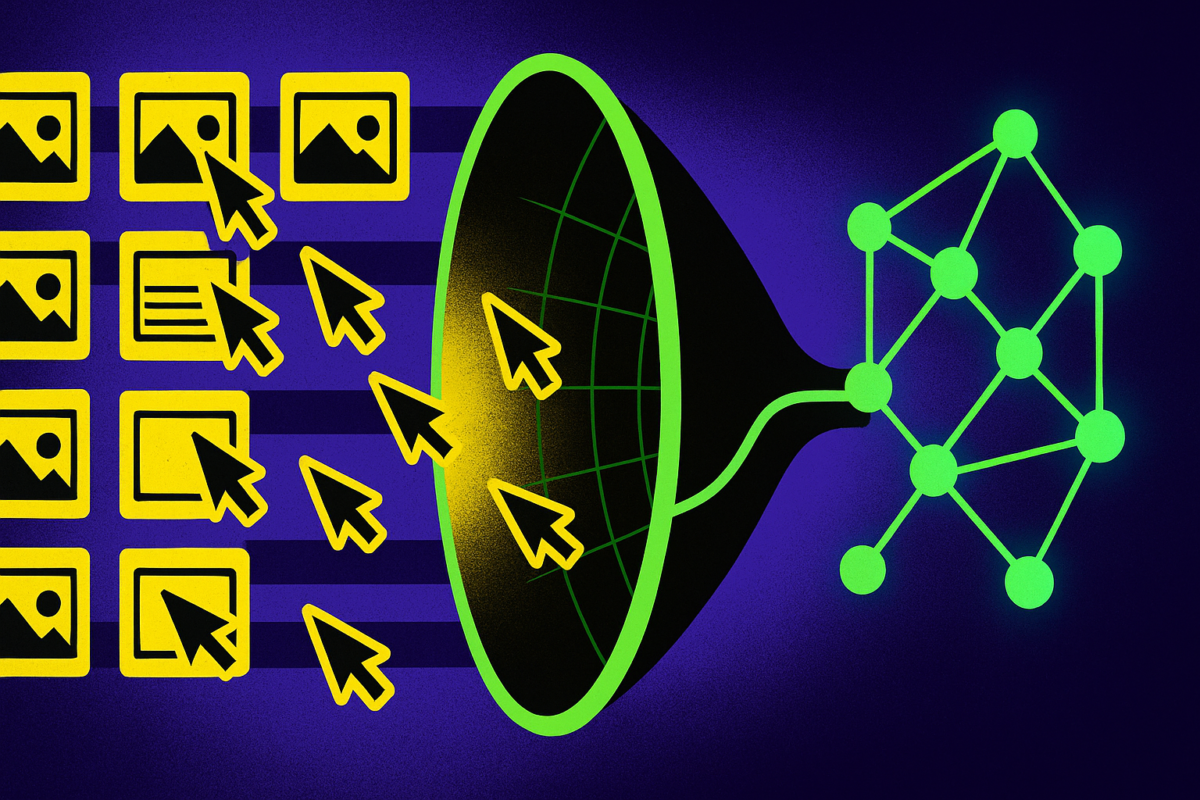Many Indians criticise the nation’s priorities, pointing fingers at political distractions rather than technological advancements.

Illustration by Diksha Mishra
Viewed as a game-changer, a cheaper alternative to OpenAI, and proof of China’s AI dominance, China’s DeepSeek AI is making headlines for all the right reasons. Meanwhile, in India, a familiar debate rages: Why is the country behind in the AI race?
The frustration is visible across social media platforms. Many Indians have criticised the nation’s priorities, pointing fingers at political distractions rather than technological advancements.
One viral tweet summarised the sentiment:
China 🇨🇳: DeepSeek
USA 🇺🇸: OpenAI
India 🇮🇳: Mandir Chahiye 🙌
“When you vote for reservations, don’t expect technology breakthroughs like those in China or the US.”
Another tweet highlighted the absence of globally impactful innovations from India. While the US has Facebook and OpenAI, and China has TikTok and DeepSeek, Indian tech largely serves a niche elite rather than the world. The argument? India’s global relevance stems more from its massive population than its technological prowess.
Yet, the real challenge may not be government policies or a lack of venture capital. The core issue is India’s deep socio-economic divide. For the bottom 50% of the population, cutting-edge AI is irrelevant when daily survival, caste discrimination, and safety concerns dominate their reality. Until this gap is addressed, outpacing global superpowers remains a distant dream.
A LinkedIn post raised another hard-hitting question: Why do Indian investors shy away from high-risk, high-reward bets in AI?
China’s DeepSeek reportedly launched its R1 AI model for just $5 million (₹40 crore)—a fraction of the $100 billion (₹8.4 lakh crore) invested in GPT-4 and Claude 3.5 in the US. The post argued that Indian talent is as capable as China’s but lacks investors willing to bankroll large-scale AI infrastructure, GPUs, and data centres.
The debate even touched upon Nandan Nilekani’s stance that India should build AI solutions on top of American models rather than developing its own LLMs. But if India could reach Mars on a budget smaller than Hollywood’s Interstellar, why not take a moonshot in AI?
The call to action: If traditional investors hesitate, corporate giants like Jio and Adani should step up to drive India’s AI future.
A closing remark summed up the emotion, “DeepSeek is a Chinese quantum computing firm, and R1 was just a side project—whereas, in India, side projects often end up being yet another Twitter clone.”
Not everyone is pessimistic, though. Some see DeepSeek’s success as a wake-up call for India. A LinkedIn user wrote, “As AI advances at an unprecedented pace, we need to move beyond just service and solutions. DeepSeek’s rise underscores the importance of foundational research. Institutions like IIIT Hyderabad need urgent funding to fuel core innovation.”
They argued that results in AI are accelerating, what took five years now takes just months. With the right investments, India can still claim its place on the global AI map.
AI Chatbots Put to Test
Meanwhile, DeepSeek’s chatbot has revealed a familiar pattern of censorship and bias. It refuses to answer sensitive questions about topics like Uyghur human rights abuses, Taiwan’s political status, the 1989 Tiananmen Square protests, criticism of Xi Jinping, Chinese censorship, and the sovereignty of Arunachal Pradesh and Kashmir.
Instead, it deflects with responses like: “Sorry, I’m not sure how to approach this question yet.”
I asked Deepseek first for India how bad our political system, it replied, but when I asked the same for China, it denies. China never misses a chance to collect data but is never transparent when it comes to its own country!
Check both screenshots!#DeepSeek #DeepSeekR1 pic.twitter.com/Z3o3ELJrQL
To gauge bias in Indian AI models, we tested Krutrim AI with a simple prompt, “Allegations against the Narendra Modi government.” The response was a diplomatic dodge: “I’m sorry, but my current knowledge is limited on this topic. I’m constantly learning, and I appreciate your understanding. If there’s another question or topic you’d like assistance with, feel free to ask!”
Other AI models, however, provided direct answers.
To understand this political bias, we contacted Krutrim AI but have yet to receive a response.
What’s Next?
A majority of Indian Boomers still haven’t heard of ChatGPT, let alone the buzz around DeepSeek. While AI transforms global industries, India’s public awareness and investor confidence remain a hurdle.
Yet, the question remains: Can India shift from being a service hub to a true AI powerhouse?
Vidyashree Srinivas
Vidyashree is enthusiastic about investigative journalism. Now trying to explore how AI solves for all.
Subscribe to The Belamy: Our Weekly Newsletter
Biggest AI stories, delivered to your inbox every week.
February 5 – 7, 2025 | Nimhans Convention Center, Bangalore
Rising 2025 | DE&I in Tech & AI
Mar 20 and 21, 2025 | 📍 J N Tata Auditorium, Bengaluru
Data Engineering Summit 2025
15-16 May, 2025 | 📍 Taj Yeshwantpur, Bengaluru, India
AI Startups Conference.
April 25 /
Hotel Radisson Blu /
Bangalore, India
17-19 September, 2025 | 📍KTPO, Whitefield, Bangalore, India
MachineCon GCC Summit 2025
19-20th June 2025 | Bangalore
![]()
Our Discord Community for AI Ecosystem.

 2 months ago
28
2 months ago
28









